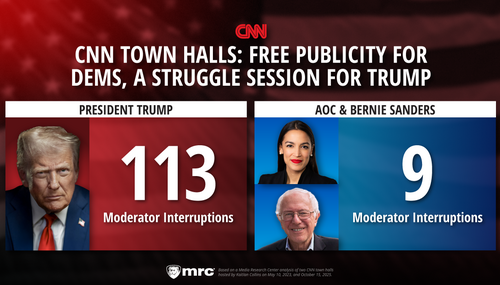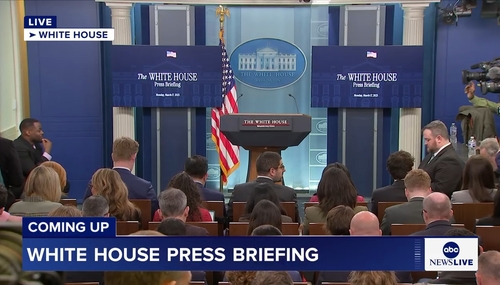Applying the AP's McCain Standard to Barack Obama Shows Sudanese Connections to His Campaign
It's a strange one sided sort of game the Associated Press is playing in its latest attack against John McCain. AP writer Jim Kuhnhenn is applying a six degrees of separation style standard in trying to accuse John McCain of investing in the Sudan because his wife owned some mutual funds that had holdings in an Indian company that allegedly does business in the Sudan. The far left has picked up on this "AP newsbreak" as evidenced by its front page status at The Huffington Post.
So I decided to play the game myself by looking at the mainstream media's favorite target of obsessive adulation, Barack Obama. My my, would you look at that? When I applied the McCain standard to Barack Obama I quickly discovered that Obama's top contributors are being targeted by activists that are targeting financial companies to divest in the Sudan. Surprised?
According to OpenSecrets.org Barack Obama received $544,000 from people associated with or employed by Goldman Sachs. Not good. In 1998 China was set to make its first public offering on the New York Stock exchange via a company called the China National Petroleum Company (CNPC). The deal quickly came under fire because China was financing arms sales to the Sudan and allegedly used Chinese prison laborers to build oil pipelines in the region. (Src. Human Rights Watch)
In response to the outcry Goldman Sachs, Barack Obama's number one contributor, restructured the deal to create a spin off of CNPC called PetroChina Co. The new structure was created to ensure that the IPO would involve a company that was limited to only operating inside China. Unfortunately that was not the case. (all emphasis mine)
PetroChina would rank as China’s largest company, with 70 percent of the country’s petroleum reserves and accounting for two-thirds of its oil and gas production. It would immediately become the world’s fourth-largest publicly traded oil and gas company, although the Chinese government, through CNPC, would still own 80 to 90 percent of PetroChina’s stock after the public offering.
PetroChina maintained it was neither a U.S. nor a Sudanese company nor would it have direct business dealings with Sudan. Upon closer examination, this was not the divorce it first appeared to be for at least two reasons: income and debt. Critics charged that the CNPC, as the parent company, would receive 90 percent of PetroChina’s income, including funds raised in the IPO. PetroChina’s chairman denied the company would use proceeds from its stock offering to fund projects in Sudan.
The deal came under wide protest by activists and special interest groups, including the AFL-CIO.
On March 22, 2000 the AFL-CIO and the NGO Free Tibet co-sponsored a protest at the office of PetroChina’s investment banker Goldman Sachs in New York City. Bill Patterson, director of AFL-CIO’s office of investments, was convinced that political opposition and subsequent negative press reduced interest in PetroChina’s IPO: “We haven’t found a single fund yet that even wants to get near this deal."
Considering that the Associated Press is so obsessed with the minutiae of John McCain's wife's mutual funds you would think that they would be concerned about this dubious relationship between China, Sudan, Goldman Sachs and Barack Obama. Strangely however the AP doesn't go down that route.
Let's keep going here. Would you like to know who else has come under criticism for investing in the Sudan? That's easy.
Barack Obama's number 2 contributor the University of California held pensions and endowment funds that were partially held in the Sudan until the middle of 2006 when it announced its plans to divest. This announcement came a full 2 years after the U.S. labeled Darfur a genocide and nearly 6 years after President Clinton extended the 1997 U.S. sanctions on Sudan. Not exactly divestment at the speed of sound.
Yet we are just beginning. The human rights group savedarfur.org has an active campaign against JPMorgan Chase , Barack Obama's number 3 top contributor, for investing in the Sudan. The anti-corporate green group Co-Op America spells out the criticism against Chase.
JP Morgan, along with Vanguard and Fidelity, has been criticized by human rights groups, politicians and the public for continuing to invest in PetroChina. PetroChina is one the largest players in the Sudanese oil industry, and the proceeds from Sudan’s oil exports go overwhelmingly to fund the Sudanese army.
Should I stop there? Nah. The mainstream media wouldn't if it were applying this standard to a republican like John McCain. Let's look at Barack Obama's fourth largest contributor, Citigroup Inc.
Citigroup is getting flak by activists because they claim that Citigroup's shareholders rejected proposals by amnesty international and other human rights groups to use their investments as a way to manipulate the situation in Sudan.
I could go on but there are some practical limitations; I have limited space and I think you get the point. If I applied the AP's McCain standard to Barack Obama then I can assume that Obama is party to investing in the Sudan big time. But that would make me stupid.
As an example of such stupidity I would like all you investors and 401K holders out there to list for me the individual holdings in your funds. Tell me off the top of your head if any of those companies do business with or are related to companies that invest in Sudan. Go ahead, look them up if need be. Anyone? No? Thought so.
The standard is bogus and would apply to all politicians somewhere along the line if we dumb it down enough.
However, since it is the AP's game I will do them one better. I call on Barrack Obama to fully divest from any contributor even remotely tied to investments made in the Sudan. Do it tomorrow, don't wait any longer than John McCain's wife did. I also call on the AP to get back to me and report on it the minute that happens.
Don't worry if you continue to go all hypocritical on me AP people because I won't be holding my breath.
Terry Trippany is the editor and publisher of Webloggin.




